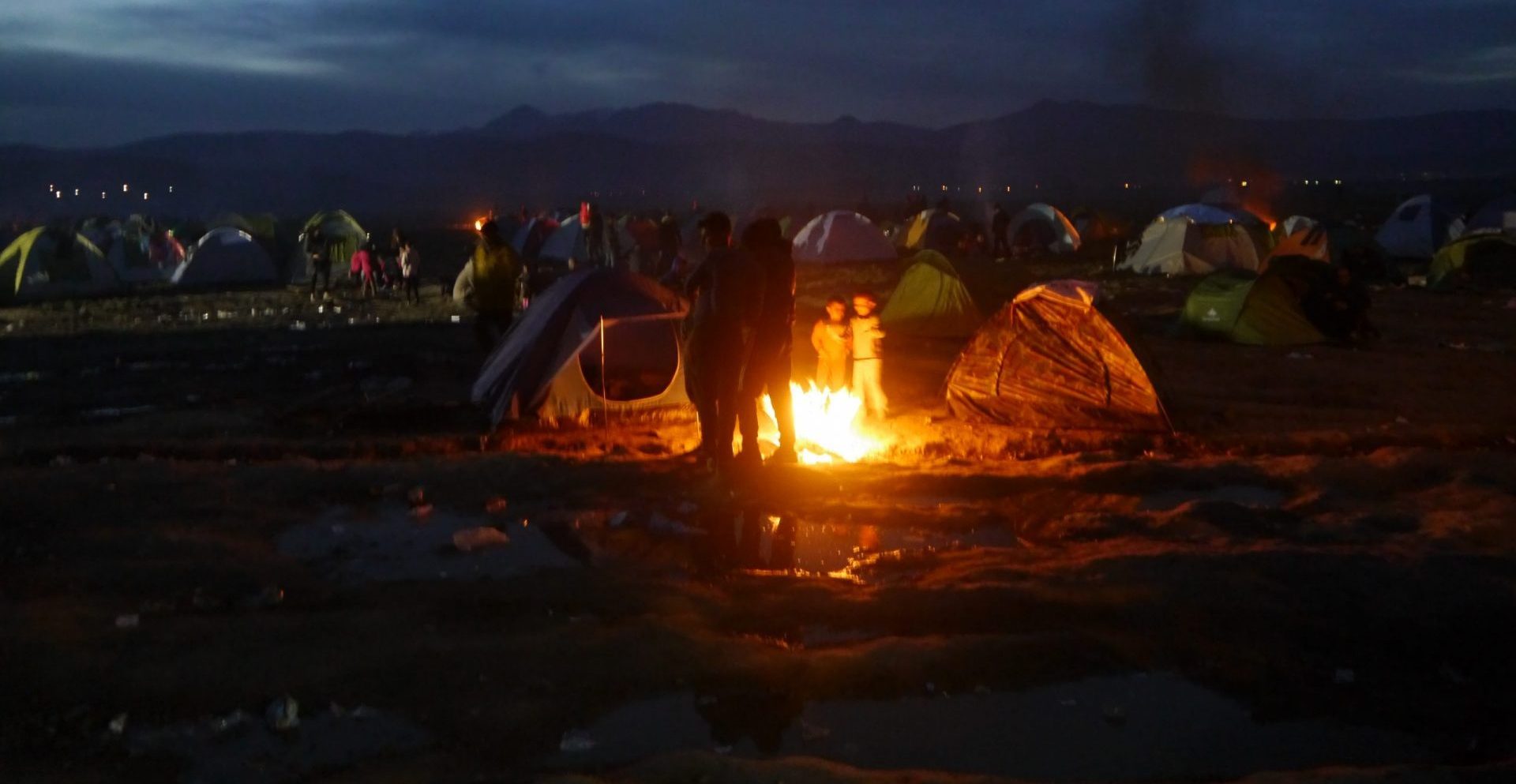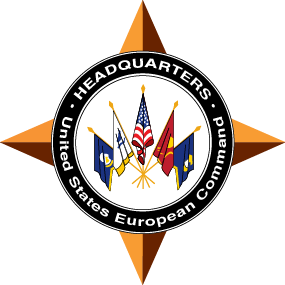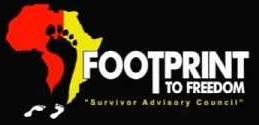
Summary
Human trafficking is a global criminal enterprise worth over $150 billion a year, according to some estimates, and snaring up to 40 million people around the world in sexual exploitation, forced labour and other forms of modern slavery.
The Friends of Europe online debate on 18 February explored new ways to tackle this scourge by shifting the focus onto prevention and policies that put survivors at the centre of counter-trafficking efforts.
Survivors First
Malaika Oringo, Founder & CEO of Footprint to Freedom and member of the International Survivors of Trafficking Advisory Council (ISTAC), believes the only way to eliminate human trafficking is by giving survivors a voice and an opportunity to lead. She outlined her experiences as a teenager trafficked from Africa to Europe and called for anti-trafficking policies to be refocused in order to put survivors at the centre of prevention and eradication efforts.
- 1:04:07 “We need really to invest in the recovery of survivors, but also to invest in the aftermath of exploitation,” said Oringo. “Recovery does not end when a person is rescued.”
- 18:02 In recorded testimony, four other female trafficking survivors called for more supportive policies to help victims rebuild their lives, including through legal, medical, psychological and economic help.
- 38:05Monique Pariat, Director-General for Migration and Home Affairs (DG HOME) at the European Commission, agreed on the need for a ‘comprehensive response’ that addresses victims’ needs for psychological and social support. She said the Commission’s proposed new migration strategy would address those issues with specific policies focused on women and children.
Participants urged measures to allow survivors to use their experience help support other victims and tackle traffickers.
- 30:07 “We would have to widen the focus … on the issue of protection, and our experience is that this issue of protection becomes really tangible when we involve survivors or victims of trafficking in the creation of structures or services that can then help people along the road.” (Sabine Wenz, Programme Director Better Migration Management at the German development agency GIZ)
- 15:49 “We should also look at engaging survivors in implementing research and coming up with policies, because the survivor narrative is very significant in coming up with the best strategies and combating human trafficking.” (Oringo)
Pathways to Prevention
There was broad agreement among speakers on the need to treat the root causes that leave people vulnerable to human traffickers.
- 37:22 “When people are vulnerable because they are poor, because they are subject to violence, because of many reasons, because they have to be displaced, then obviously they are very prone to become the prey of traffickers.” (Pariat)
- 32:45 “Prevention passes through two important ways,” said Maria Laura Conte, Communications Director at the Italian NGO Fondazione AVSI. “The first is information, of course, but the other is alternatives, building alternatives of job creation, of education.”
- 4:11 “Europe should … do more on legal migration, offering paths for people to come,” Notis Mitarachi, Greek Minister of Migration and Asylum, said. “We don’t want a closed Europe. We want people to be able to come here, but to come in a legal way.”
- 16:21 “We need also to tackle the demand of Europe … the demand for exploitive services,” said Oringo. “I became a victim of human trafficking because of the gender-based, gender-specific demand of sexual exploitation, so if we do not tackle the demand and legalisation of prostitution in Europe, a lot of vulnerable migrants are going to end up falling in this cycle.”
A silo-busting approach
Collaboration among national authorities, international organisations and agencies is vital to combat the often complex, cross-border trafficking networks.
- 28:26 “International corporation, is extremely important. A lot of trafficking is cross-border, it is fused with migrant smuggling, with migration or refugee flows, and this needs also be addressed.’ (Ilias Chatzis, Head of the Anti-Human Trafficking and Migrant Smuggling Section at the United Nations Office on Drugs and Crime (UNODC))
- 7:06 Mitarachi outlined the work Greece is doing with its EU partners and agencies such as Europol and Frontex, as well as with neighbouring countries. “We keep on emphasising the need for collective action against this increasing phenomenon,” he said.
- 48:29 The importance of a multidisciplinary approach was also underscored by Ana Cristina Jorge, Director of Operational Response Division at Frontex: “We cooperate in different projects that are in place, also with non-EU countries, in this area of fighting the trafficking in human beings”.
- 35:18 Melita Gruevska-Graham, Head of the Anti-Trafficking Programme at ICMPD (the International Centre for Migration Policy Development) cautioned that “In order to avoid a situation where such girls and boys, women and men fall through the cracks of state policy and legislative frameworks, just because they do not fit into one specific category, the anti-trafficking stakeholders must collaborate closely with the stakeholders working on internal displacements, on international protection, on child protection and also on migrant smuggling”.
Punishments that fit the Crime
Several contributors called for a greater emphasis on the criminal nature of human trafficking.
- 27:56 “This crime … needs to be really seen as what it is, which is exploitation of humans by other humans,” said Chatzis. “It’s a very serious crime (but) we see very low levels of conviction; traffickers basically walk or get a fine.”
- 38:47 “It’s a crime and it’s a very profitable crime. It creates a lot of money and that’s why it’s flourishing,” said Pariat. “We need to break this business model and also to allow (for) fighting the impunity of the perpetrators because there is … impunity for those who traffic human beings.”
- 53:03 Mitarachi insisted Greece treats trafficking as ‘a very serious crime’. Identifying trafficked people at the borders, offering them advice, alternatives and asylum can help break the business model, he said. “We offer them legitimate ways and support through a legal framework to get legal residence and access to employment and support,” the minister explained. “That is something that fundamentally kills the business model of those that are trying to use other people for profit.”
About
Human traffickers run sophisticated operations. Often bypassing border officials, national and local police – and on occasion the judiciary – human trafficking is intimately intertwined with migration. Reports have brought to light how women are taken by trafficking networks during their journey and face widespread sexual exploitation. And the danger does not end at the border – even after arriving at reception centres, shortages of police and guardians for unaccompanied children create hotspots for exploitation and smuggling.
There isn’t a major city in Europe that doesn’t benefit from human trafficking of women and girls. Furthermore, the proceeds of trafficking underpin illegal arms, drugs and terrorism. This is a sinister and dirty equation, and yet we in Europe largely turn a blind eye to it. Frontex, the European Border and Coast Guard Agency, recently released its annual risk analysis, claiming to provide a comprehensive picture of the European Union’s migratory situation. Yet, missing from the picture – human trafficking and its significant impact on women and girls. As the European Commission looks towards its 2021-2025 Action Plan against migrant smuggling, it will be vital to address protections for those on the move and the relationship between human trafficking and organised crime.
This Policy Insight debate will broach the realities of migrant smuggling and address the steps that must be taken to ensure that people on the move can undertake safe and legal journeys.
Related content
- Same storm – different boats: the impact of COVID-19 on Europe’s shadow economy
- Crimes against women and girls – the forgotten victims of the EU’s new migration pact
- Beyond borders: migration, mobility and good governance in the Africa-EU partnership
- Unaccompanied migrant children: a travesty of EU values
Our events include photos, audio and video recording that we might use for promotional purposes. By registering, you give your permission to use your image. Should you have any questions, please contact us.
PHOTO CREDIT: CC/Flick – Nonviolent Peaceforce
Schedule
Questions include:
- What concrete steps will the 2021-2025 Action Plan against migrant smuggling take to create safe and legal pathways?
- What are the policy choices and mechanisms that need to be developed to safeguard migrants from human trafficking?
- What role can the EU play; is the new EU Pact the answer and what are the implications for the work of Frontex to protect migrants and tackle organised crime that benefits from trafficking?
- What kind of support systems are needed for survivors of human trafficking, and what should policymakers learn from their experiences?
speakers
Ana Cristina Jorge
Director of Operational Response Division at the European Border and Coast Guard Agency (FRONTEX)
Panagiotis Mitarachi
Greek Minister of Immigration and Asylum
Malaika Oringo
Founder and CEO of Footprint to Freedom and Member of the International Survivors of Trafficking Advisory Council (ISTAC)
Monique Pariat
Director-General for Migration and Home Affairs (DG HOME) at the European Commission
Moderator
Dharmendra Kanani
Chief Operating Officer and Chief Spokesperson of Friends of Europe
Speakers

Director of Operational Response Division at the European Border and Coast Guard Agency (FRONTEX)
Ana Cristina Jorge leads the Operational Response Division of the European Border and Coast Guard Agency (Frontex), overseeing the Coast Guard and Law Enforcement, Return Support and Field Deployments units. The Operational Response Division supports EU member states and coordinates action across the Union in several areas, including responses to human trafficking and migrant smuggling. Prior to her current role, Jorge led the Field Deployments Unit, previously named the Joint Operations Unit. She has also served the Immigration and Borders Service in Portugal as Head of Borders Division and Director of the Central Directorate for Borders.

Greek Minister of Immigration and Asylum
Panagiotis Mitarachi is a Member of the Hellenic Parliament. Prior to his current role, he has held the positions of Deputy Minister for Labour and Social Affairs, as well as Deputy Minister for Economic Development and Competitiveness. Combining an extensive career as a politician and experience in the development and private sectors, Mitarachi has also notably served as Alternate Governor in the European Bank for Reconstruction & Development (EBRD) and Governor in the Board of Governors of the Black Sea Trade & Development Bank (BSTB).

Founder and CEO of Footprint to Freedom and Member of the International Survivors of Trafficking Advisory Council (ISTAC)
Malaika Oringo is a survivor and an advocate against human trafficking. She founded Footprint to Freedom in the Netherlands to stand up for victims’ rights and strengthen survivors’ inclusion and engagement, arguing for a bottom up approach. Talented speaker and campaigner, Oringo has highlighted gaps in European legislation and policy against human trafficking. She has also advised on best practices that can provide victim centred trauma informed and survivor centred approaches to improve response to survivors and victims’ needs. She serves as a member of ISTAC, a council launched by the Organization for Security and Co-operation in Europe (OSCE) Office for Democratic Institutions and Human Rights (ODIHR) to assist countries with anti-trafficking efforts.

Director-General for Migration and Home Affairs (DG HOME) at the European Commission
Monique Pariat currently leads the adoption, implementation and monitoring of the EU’s legislation and policy on migration, asylum and internal security. Prior to her current role, Pariat previously led the EU’s European Civil Protection and Humanitarian Aid Operations (DG ECHO) as Director-General, overseeing the development and implementation of the EU’s humanitarian aid and civil protection mechanisms. She has also previously held numerous senior management posts at the European Commission, specialising in topics ranging from maritime affairs to justice, freedom and security.

Chief Operating Officer and Chief Spokesperson of Friends of Europe
Prior to joining Friends of Europe, Dharmendra Kanani was director of policy at the European Foundation Centre (EFC). He was the England director at the Big Lottery Fund, the largest independent funder in the UK and fourth largest in the world. Dharmendra has held senior positions in the public and voluntary sectors and advisor to numerous ministerial policy initiatives across the UK.
Activities
Ukraine's future: a discussion on a just and lasting peace
Past event In person

- Area of Expertise
- Peace, Security & Defence
Three years of courage: navigating Ukraine’s future and the road to peace
Past event Online

- Area of Expertise
- Peace, Security & Defence
Discussion on the EU priorities for Ukraine's support
Past event In person

- Area of Expertise
- Peace, Security & Defence
EU-Western Balkans Summit: a renewed approach to the region
Past event In Person & Livestreamed

- Area of Expertise
- Peace, Security & Defence
European defence: finally some money, but what comes next?
- Category
- #CriticalThinking
- Author
- By Jamie Shea
The US-Russia bromance: the triumph of hope over experience?
- Category
- #CriticalThinking
- Author
- By Jamie Shea
Trump hasn't left NATO, instead he's trashed it
- Category
- Frankly Speaking
- Author
- By Giles Merritt
Ukraine: the art of the deal – Is Europe in?
- Category
- #CriticalThinking
- Author
- By Michael Ryan & Valbona Zeneli

- Area of Expertise
- Peace, Security & Defence

- Area of Expertise
- Peace, Security & Defence

- Area of Expertise
- Peace, Security & Defence

- Area of Expertise
- Peace, Security & Defence
Continue
the debate on
- Debating Europe



